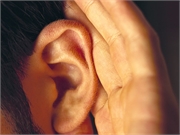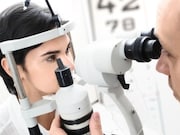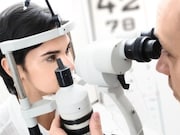Tag: Dizziness/Vertigo
Dizziness, Vertigo Linked to Increased Risk for Migraine
Risk for migraine and other types of headache higher in the dizziness group than the vertigo group
Patients With Migraine Have Balance Impairment
Migraineurs present with lower Sensory Organization Test scores; SOT scores linked to fear of falls, dizziness disability, kinesiophobia
Study Explores Characteristics of Vestibular Migraine
Severe headache associated with age 43 years or younger, while severe vertigo associated with age 41 years or older
Virtual Roller Coaster Ride Used to Study Migraine Symptoms
Patients report more dizziness, motion sickness; neuronal activity more pronounced in superior and inferior occipital gyrus, pontine nuclei
Feeling Dizzy Upon Standing May Point to Later Dementia
Dementia link seen only in people who have a drop in their systolic blood pressure
Vitamin D/Calcium Reduces Benign Paroxysmal Positional Vertigo
Annual recurrence rate reduced with vitamin D, calcium supplementation versus observation
Hearing Loss Linked to Postural Instability in Older Adults
Findings seen for patients 40 years and older, even when hearing loss is only on one side
Goggles That Record Nystagmus Could Help Diagnose Vertigo
Vestibular event monitoring feasible, could allow accurate diagnosis of episodic vestibular disorders
Goggles That Record Nystagmus Could Help Diagnose Vertigo
Vestibular event monitoring feasible, could allow accurate diagnosis of episodic vestibular disorders
Neurologists Identify New Type of Vertigo
Long-term prognosis favorable, with improvement of symptoms in more than half of patients














